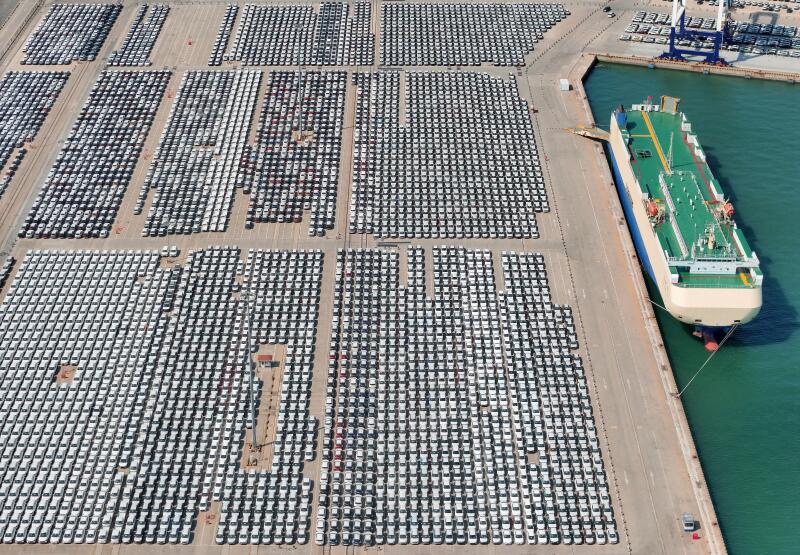Carmakers bet on hybrids as shift to EVs slows
Nissan, Hyundai and Ford focus on tapping resurgent demand for so-called stop-gap vehicles
High interest rates and concern over EV charging points has prompted a rebound in sales of hybrid vehicles © Getty Images
Stay informed with free updates
Simply sign up to the Electric vehicles myFT Digest -- delivered directly to your inbox.
Global carmakers are stepping up their investment in hybrid technologies as consumers’ growing wariness over fully electric vehicles forces the industry to rapidly shift gear, according to top executives.
A combination of still high interest rates and concern over inadequate charging infrastructure has chilled buyers’ enthusiasm for fully electric cars, prompting a rebound in sales of hybrid vehicles that most of the industry had long regarded as nothing more than a stop-gap.
Tapping the resurgent demand for hybrids was a priority, executives from General Motors, Nissan, Hyundai, Volkswagen and Ford told the Financial Times’ Future of the Car Summit this week.
“We have to invest heavily in the future of plug-in hybrids,” said Mark Reuss, the president of General Motors. “We have to be agile. We have a global tool chest of technical things that we can deploy fairly rapidly.”
The view was echoed by José Muñoz, global president of Hyundai, which is now considering manufacturing hybrids at its new $7.6bn plant in Georgia given more drivers are baulking over buying fully electric vehicles.
“If you asked me six months ago, definitely a year ago, I would have told you . . . fully electric,” said Muñoz. “A lot of things have happened between then and now. Electric is still the future. But now we are seeing a longer transition.”
Electric car sales growth slowed in the US and Europe last year, prompting carmakers to offer discounts. Industry executives have already acknowledged that the market has lost some momentum as future sales growth increasingly depends on demand from mainstream buyers rather than early adopters.
At the same time, there are concerns over whether governments might backtrack on previous plans to force a rapid transition away from petrol-based cars.
Ford’s European boss Martin Sander said that the pace of the transition in Europe was “down to the consumer”, and that US group was prepared to continue selling hybrid models into the next decade.
“We want to make sure that we are setting up our business model so that we are flexible enough” to address shifts in demand, Sander told the summit. “Our whole business and life cycle planning is much more dynamic now.”
US rival General Motors, which had largely eliminated plug-in hybrids from its range, said in January that it would reintroduce the technology.
Consumers’ increasing hesitation comes just as carmakers face a growing threat from Chinese manufacturers rolling out cheaper electric vehicles both in their domestic market and, increasingly, in Europe.
To remain competitive in China, Peugeot needs to stay “agile” to avoid getting sucked into the country’s price war, said its chief executive Linda Jackson. “We’re holding on but the Chinese market is the biggest automotive market in the world so it’s very difficult for a global manufacturer not to be present,” Jackson said.
According to Schmidt Automotive Research, Chinese brands like BYD as well as brands such as Polestar that manufacture in China accounted for almost 10 per cent of the fully electric cars registered in western Europe in March. That is up from just over 4 per cent two years ago.
“We see an increase of competition coming from China brands and other technology worlds,” Nissan’s chief executive Makoto Uchida told the summit.
The threat from Chinese companies has only heightened carmakers’ focus on hybrids, which typically have double-digit margins compared with often lossmaking fully electric vehicles.
For many carmakers, the slower switch is allowing them to continue to squeeze profits from traditional engines while also providing more financial firepower to develop electric vehicle technology.
The majority of the industry still believes that developing profitable fully electric cars is the most important long-term goal.
Earlier this week, Toyota, the biggest champion of hybrids in recent years, said that it planned to lift spending on new technologies by more than 40 per cent after hybrid sales drove the group’s profits to a record last year.

.jpg)

